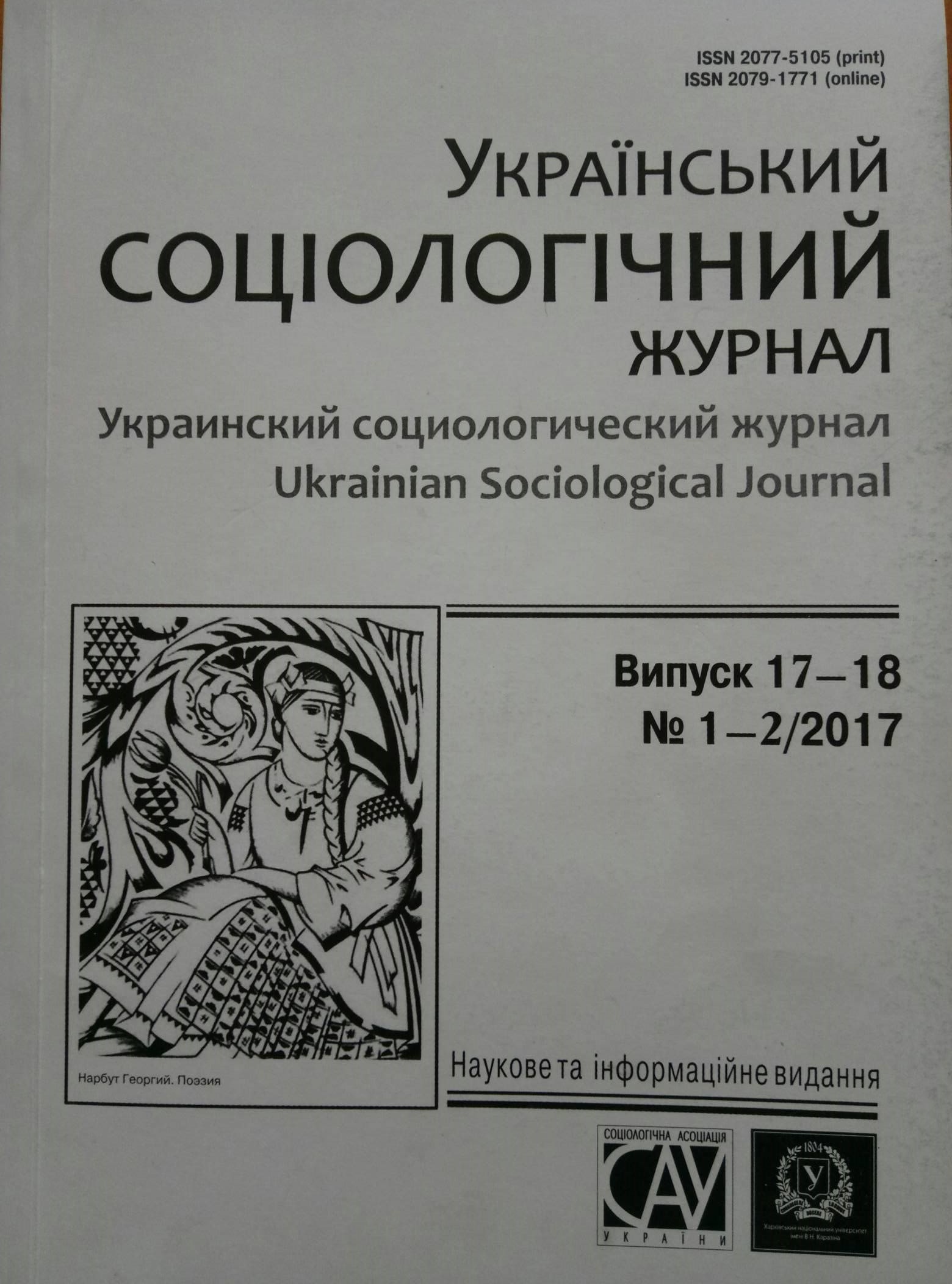Communicative effects of the empty word: the paraological foundations of sociological postmethodology
Abstract
The article is devoted to issues related to the maximum possible violations of the principle of accuracy in the content of words, leading to empty talk in verbal communication, giving rise to specific communicative effects. It is emphasized that when such happens in social sciences, empty concepts (concepts with zero volume) arise that do not correspond to the criterion of scientificness, actualizing its illusion: science passes into the state of post-science (post-sociology in our case). In consequences the social and historical practice in the eyes of scientists loses the value of the criterion of truth; the connection between the socio-historical development of society and the science about it is torn; there is a discrediting of the so-called general concepts - theoretically significant categories of knowledge; an increasing number of methodologies are not able to provide a theoretical synthesis and give society a knowledge of its historical perspective. In sociology such criterion silently recognizes the success in the market of sociological information, closed to private practices and then the concepts of completeness, accuracy, etc., connected with the word truth, turn into glosses - they sound, but are empty, and words related to sociological empiricism, such as validity, reliability, representativeness, verification acquire special value.
Downloads
References
Николаенко Л. Г. Функциональное пустословие: языковые игры на либеральном политическом поле / Л. Г. Николаенко // Проблеми розвитку соціологічної теорії: держава – людина – соціальна відповідальність : матеріали Х Всеукраїнської науково-практичної конференції (4 травня 2013 року, м. Київ). – К. : Логос, 2014. – С. 103-137.
Маллиган К. Точность и болтовня. Глоссы к парадигматическим противопоставлениям в австрийской философии [Электронный ресурс] // Логос. – № 1, 2002 (32). – Режим доступа: http://www.ruthenia.ru/logos/number/2002_01_32.htm].
Гегель Г.В.Ф. Философия духа / Г.В.Ф. Гегель // Энциклопедия философских наук. Том 3. – М., 1977. – 471 с.
Кант И. Критика Чистого разума / И. Кант // Сочинения в шести томах, т. 3. – М. : Мысль, 1964.
Кант И. Опыт некоторых рассуждений об оптимизме / И. Кант // Сочинения в шести томах, т. 2. – М. : Мысль, 1964.
Иеромонах Иов (Гумеров) [Электронный ресурс]. – Режим доступа: http://www.pravoslavie.ru/29173.html
Блур Д. Сильная программа в социологии знания [Электронный ресурс]. / Д. Блур. – Режим доступа: http://www.philsci.univ.kiev.ua/UKR/courses/asp/asp-lit/08_bloor.pdf
Жижек С. Идеология – пустое слово, именно поэтому она и работает [Электронный ресурс] / С. Жижек. – Режим доступа: http://archives.colta.ru/docs/20836
Паренти М. Демократия для избранных. Настольная книга о политических играх США / М. Паренти. – М. : Поколение, 2006. – 418 с.
Ивин А.А. Искусство правильно мыслить [Электронный ресурс] / Ивин А. А. – Режим доступа: http://stavroskrest.ru/sites/default/files/files/books/ivin_isskustvo_ptavilno_mislit.pdf. 1. Шабанова М. Социология свободы: трансформирующееся общество [Электронный ресурс] / М. Шабанова. – Режим доступа: http://polbu.ru/shabanova_freedom/.
Гоголь Н. В. Мертвые души [Электронный ресурс] / Н. В. Гоголь. – Режим доступа: http://ilibrary.ru/text/78/p.1/index.html.
Парсонс Т. Понятие общества: компоненты и их взаимоотношения [Электронный ресурс] / Т. Парсонс. – Режим доступа: http://www.gumer.info/bibliotek_Buks/Sociolog/pars/pon_ob.php.
Когаловский М. Р. Глоссарий по информационному обществу / М. Р. Когаловский / Под общ. ред. Ю. Хохлова. – М. : Институт развития информационного общества, 2009. – 160 с.
Яковенко Ю. І. Артефакт у соціологічних дослідженнях у контекстi теopiї фундаментальноi тpiади / Ю. Яковенко, М. Бургін // Вісник Київського університету. Серія: Соціологія. Психологія. Педагогіка. – К., 1999. – Випуск 7. – С. 4-8.




